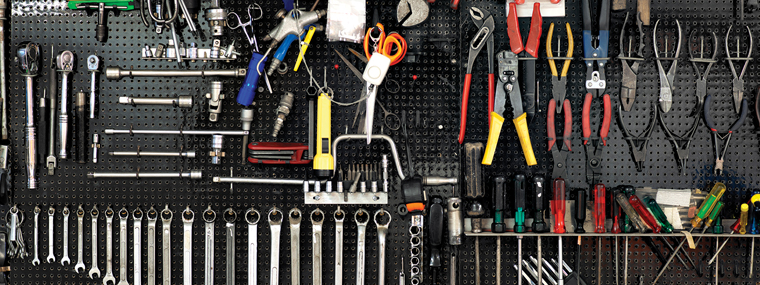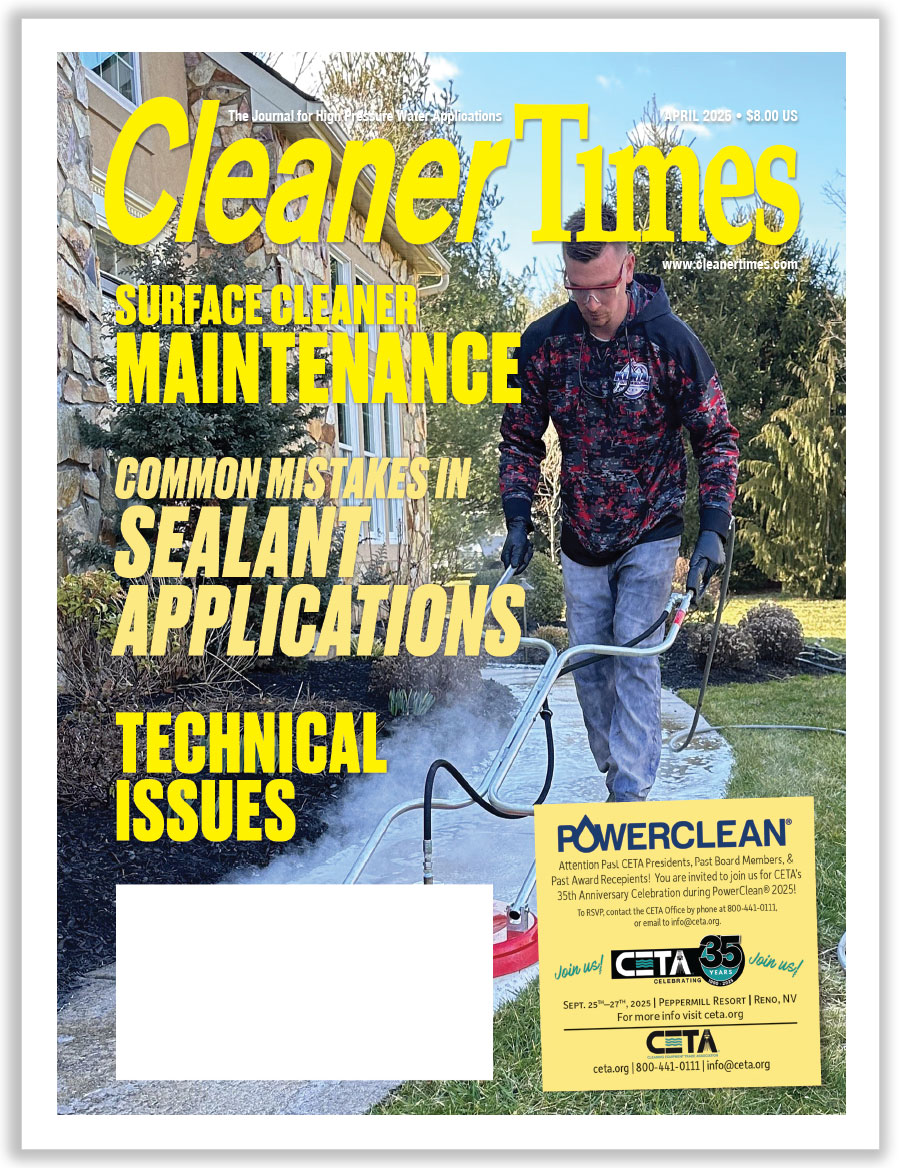
Scratching the Surface: Identifying, Maximizing Productivity, and Training Service Technicians
by John Purswell / Published September 2014

When asked how to train and keep good service technicians, my first reaction was to point out how that topic is not an article, but a book and maybe even a series. There are so many important components, and this article will only scratch the surface.
In selecting personnel, it is important to note that many things can be learned and skills can be honed, but there is no substitute for raw intelligence. You can put lipstick on a pig and dress him in fine clothes, but you are still going to have a pig when the charade is over. You can spend any amount of money, time, and talent in trying to teach a pig to sing, but the pig will not learn to sing, and in the process, you annoy the pig a great deal trying to teach him something he has no aptitude for. So in choosing technicians, select your candidates carefully. Make sure that the applicant wants to be a technician.
In expanding on the above, this country finds itself in a quandary because most parents want their offspring to go to college and graduate into a college graduate-type profession. Willie Nelson made a lot of money singing a song that says “Mamas, don’t let your babies grow up to be cowboys. . . make ‘em be doctors and lawyers and such.” Well, if all our kids are doctors and lawyers, who is going to build machines, operate them, and fix them when they break? There was a major piece in the Wall Street Journal on July 21, 2014, about this very subject.
There has been some discussion of how to grow CETA’s Education Foundation toward granting some technical school scholarships. Everything takes time, but I think the cleaning equipment industry can absorb 100 tech-savvy graduates into service and sales every year if we can get them. If one of my customers questions my labor rates, I tell them if they have a list of candidates that work for less and have the requisite skills, I am hiring. However, every technician on my payroll has been educated and trained in house. We have to train them one at a time. That normally ends the discussion.
To be more specific, the starting place is to find a candidate who has the ability to learn and the desire to make a career as a technician. The pay scale between skilled and educated technicians and college graduates is already nearing parity in many fields. As a matter of fact, some skilled trades have already reached that parity in our area. It should also be pointed out that the technician will normally enter the workforce with a lot less student debt, so there are pluses and minuses for both career paths.
Now putting my soapbox aside and getting more specific, the first thing to look for in a candidate is to see if he has the raw intelligence. Next, look for someone who has had some electrical background. If the candidate has some good, basic, electrical-troubleshooting skills, the mechanical skills can be reasoned out with talent and intelligence, but the electrical skills are a highly-coveted attribute when hiring a technician.
For clarity’s sake, the use of the word talent here means to express an ability that was bestowed upon a person by their creator. You either get it or you don’t. Many examples could be provided, but the talent to see how mechanical things work is pertinent to this article. Some people look at a mechanism and can quickly, without any prior knowledge of that particular mechanism, figure out how it works. That is a talent! Others can see the same thing, and it is like a chicken looking at a card trick. They know they saw something but have no idea what. The person with a talent has no basis to boast, since that was a gift at birth. A skill is something you have developed through your efforts to learn, such as a 40-foot jump shot or knowing all the parts and purpose of the inner workings of a plunger pump.
After identifying a candidate with the aforementioned skills sets, it is up to the business owner to devise ways to incentivize their employees and, more specifically, their technicians to maximize productivity. To be sure, that is a challenge. The following questions will probably be very controversial, but they are asked in order to provoke a little thought. Do you reward your service employees for being the worst technician on the payroll and encourage them to utilize the most rudimentary tools in the most inefficient method they can achieve? Do you penalize your most efficient technicians for having the best skill set, investing in the best tool selection, and working the hardest? Think about what you are doing when the longer the job takes, the more hours the technician writes, and the more they get paid. Conversely, the quicker the technician finishes the task and gets to the next job, do you only reward him with lower pay and more work and no incentive to invest in a complete set of good tools?
Incentive-based pay is effective, and it would greatly benefit you to find ways to implement it in every phase of your business. Our company uses the flat rate system for our technicians, and it certainly has been a challenge to get it implemented, but we are well pleased with the results. There are many ways to develop and implement incentive-based pay, and all of them work to a certain degree, but, of course, some work better than others.
Your service and parts business should be a profit center for your business. If that is not the case, are you blaming your technicians for a poorly run service department? That is a whole other article that time and space won’t permit me to explore. However, I know there are still many improvements that can be made at Alklean, and when I went looking for what I was doing wrong, I sure found a lot of information and room for many improvements.
After deciding on how to incentivize your technicians, it is now time to ask, ‘Who is going to train your technician candidate now that you have carefully screened the applicants and vetted them with a few months in your service department?’ At the present time, you have two alternatives. If you have the time and the skills, you can train them in house, but few distributors have the time, training facilities, and knowledge for in-house training. The second alternative, and the most viable choice for a majority of distributors, is to send your technicians to a manufacturer’s service school. When you are deciding which manufacturer you want to support and do business with, consider the support and quality of training your distributorship will be offered. Some manufacturers have spent and continue to spend heavily in developing a training and certification program to train sales and service personnel for the distributor. Those manufacturers who provide their distributors service technicians with in-depth and detailed technical training should be highly commended. In my opinion, service and applications expertise is what separates a quality distributor from an Internet order taker. How can you provide quality service and applications expertise without a well-trained staff?
The last component to comment on concerns itself with pay. To address that subject, ask yourself ‘what does it cost to have no technician or to train a new one?’ Your compensation package must be competitive for the area. Different labor markets require different pay scales. In talking to people around the U.S., one receives billable labor rates from $45 per hour to in excess of $100 per hour. When questioned by a customer that a competitor’s labor rates are less than ours I reply, I don’t blame them, they know what their service is worth. If it takes three trips because they don’t know what they are doing, they don’t have the parts and or test equipment required, and in many cases, they can’t fix it correctly or at all, how much money have you saved? Normally, they will think about that for a second and tell me to send one of the technicians out.
Service is important. Service is a major contributor to having a successful parts department. One thing I have observed in the last 43 years in the pressure washer business is that business runs in cycles. You need to pay your building notes, maintain your staff, and feed your family when business is up and when it is down. If you are a pressure washer distributor and stay in the business long enough, the economy in your area will turn down for various reasons. Normally, because somebody in Washington does something dumb—imagine that. When that happens, if your service and parts departments are strong, they will help carry you through the lean times.
John Purswell is CEO of Alklean Industries, Inc., located in Pasadena, TX.




